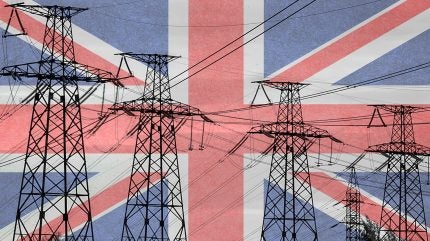
A recent survey of readers, conducted by Offshore Technology’s parent company GlobalData in the weeks leading up to the election, has revealed that the site’s users see the top priority of the new parliament as being opening new fields with new licencing.
Coming a close second was exploiting existing fields to their full potential.
The survey gathered industry opinions on how the new government should handle not only the continued transition to cleaner energy, but also the expected and desired outcomes.
Third on the list of priorities was the desire to end all new licencing immediately, while making the production of offshore energy as green as possible came in second from bottom.
Rock bottom of the pile of priorities was increasing energy storage capacity, a surprising finding given that the global battery energy storage market was worth $6.91bn in 2022.
As for which political party will most effectively implement the North Sea’s energy transition, 50% of respondents chose the Labour Party, elected less than two weeks ago with a huge majority.
However, the remaining 50% said the election result would not even influence the pace or implementation of the transition.
At the heart of Labour’s thinking, as outlined in the party’s manifesto, is the so-called Green Prosperity Plan, which will, in partnership with business through the National Wealth Fund, invest in the industries of the future, with the party planning to create “650,000 jobs across the country by 2030”.
Labour also said during the campaign that it will maintain a strategic reserve of gas power stations to guarantee security of supply, ensuring a “phased and responsible transition in the North Sea that recognises the proud history of our offshore industry”.
In fact, the manifesto outlines plans to spend £7.3bn on scaling low-carbon industries over the course of the parliament, coupled with the introduction of a ten-year infrastructure strategy to better integrate various sources of energy.
Labour made a point of emphasising that it will close loopholes in the windfall tax on oil and gas companies, claiming that companies have “benefitted from enormous profits not because of their ingenuity or investment, but because of an energy shock which raised prices for British families”.
As for the overall implications of the energy transition, half of the survey respondents said the election result heavily influenced whether energy policies will be one of the top priorities.
A third of respondents said that, irrespective of the election result and the winning party, the UK’s transition will be more prioritised than it is now.
Just under 17% said that regardless of which party wins, the transition will be less of a priority.
In terms of which party would best utilise the UK’s offshore oil and gas energy capabilities, half of the respondents went for the Conservatives, while 33% chose Labour. The remainder said the result of the election would not influence the UK’s offshore oil and gas capabilities.
It has already been reported that the new government could run into serious legal issues if its plans to place an immediate ban on new North Sea oil and gas exploration come to fruition, despite claims from the government that no such plans exist.
The UK is currently in the middle of a North Sea licensing process, and any ban would start before the offshore oil and gas industry’s latest licensing round closes.
However, the UK’s Department for Energy Security and Net Zero has denied reports that Secretary of State Ed Miliband had banned the North Sea oil regulator from issuing any outstanding drilling and exploration licences.
A spokesperson for the department, when contacted by Offshore Technology, labelled the claims as a “complete fabrication” inventing “meetings and decisions that have not taken place”.



